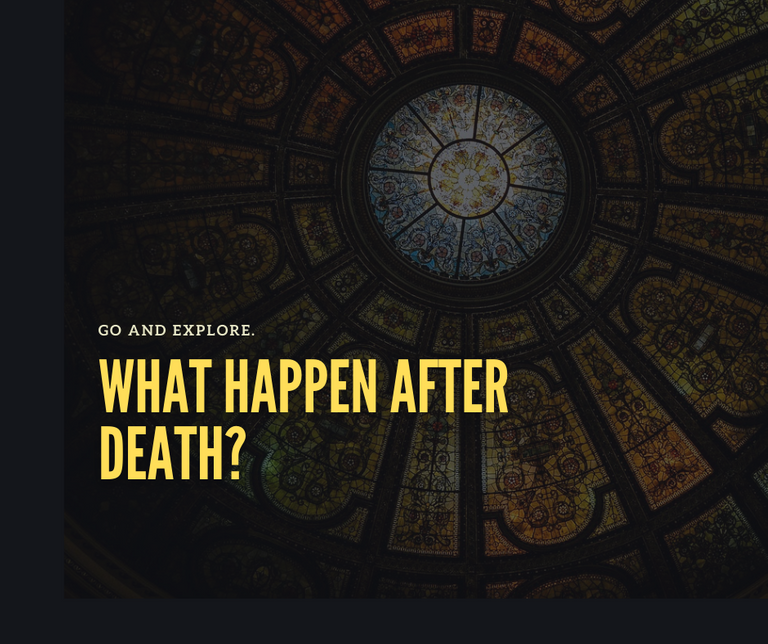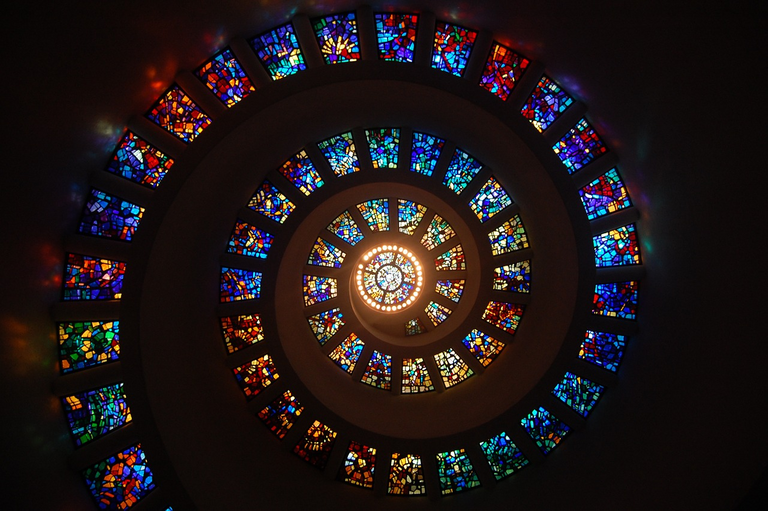What happen after death?

What happens after death? We considered this question as one of the profound challenges that we are yet to unravel. Scientists and science itself tried to answer it logically, but we are too far from answering it. The question seems like a floaty one. Some physicians, physicists, and psychologists have tried to harness the rational horsepower of science to answer this big question.
Some scientists seek out and referenced religious beliefs and myths to answer the question as to destination and reincarnation. Others seek to find the absolute reality that excludes the existence of a deity or divine one. Finding out is easy. However, reporting back is the challenge of showing some relevant evidence to prove their claims. I will tackle this question in faith and science. However, there is no assurance that we can find a correct answer, but we can learn from it.
This one question has concerned our society more than any other since the beginning of human existence. This topic, as simple as it can be, is the one that has pushed our world to embrace new theories, inventions, and perspectives. It is the one question that has determined humanity in the process of attempting to address it: from rational to irrational, from the most intelligent creation that has ever walked the face of the Earth to simply.
Man is a curious person by nature, always thinking, worrying, and looking for the one thing he doesn't have, the one thing he does not know. There is no valid scientific rationale or hypothesis that supports the concept of life after death. Many people have attempted to study and tried to explain the afterlife, but to no avail. Many other problems that face human life, such as diseases, natural calamities, and others, have made significant progress due to the help of scientists and other academics. Dealing with or eliminating death, on the other hand, has proven to be an impossible challenge for humanity.

Religion explains life after death
Religious philosophy provides some insight into the nature of life beyond death. The Christians believe that people die, but their souls and spirits continue beyond death. Reincarnation is an afterlife idea included in the Christian faith, which assures our soul is available to someone when they are born, even if they die. The soul of such a person is reborn in a new body and exists as a distinct individual.
However, some elements and qualities of the deceased individual may show in the incarnated creature. Because of the influence of the local surroundings and the chronology, such a person may live a different life. The Bible describes a few people whose souls were reborn in others, notably Elijah the prophet, whose spirit waded into the sea.
Some faiths, such as Buddhism, believe that when humans die, their souls separate from their bodies and are reborn on other creatures in another lifetime. These entities might include other people or animals. As a result, human souls never die but rather live in different bodies and lives. Buddhism opposes the idea of a spiritual world, such as heaven or Earth. On the other hand, it believes that a person's soul moves from body to body on Earth. As a result, the afterlife exists on Earth. The difference between a person who dies and someone who lives after them is that the former has no memory of their past existence.
Hindus believe and accept reincarnation, which after death, the atman (soul) of a person passes into a new body and life. This new life depends on how the person lived their previous life. Hindus believe in karma, which is the sum of the good and bad actions taken. Good karma helps with a better rebirth. For Islam, they believe Allah appointed two angels Munkar and Nakir question each person to test their faith. Righteous believers respond correctly and live in peace and comfort, while sinners and disbelievers fail and suffer punishments.
Our religious backgrounds affect how we mourn and remember. Some religions bury their dead, while others cremate them. Some people continue to practice rituals even after a loved one has died, and for others, the formalities end with the funeral. Many families separated from their ancestors' birthplaces, so they have adapted ceremonies to their new surroundings. People tend to perceive death as an endpoint of life across history and throughout cultures, beliefs, and their religion. However, developments in resuscitation research and critical care medicine have called into question theories about death's finality.

Science explains Death Experience
It is referred to as an experience of death by scientists since that is what it is. People claim to have had a one-of-a-kind cognitive experience related to death. They may be able to see their body and the physicians and nurses working to revive them, but they may remain peaceful while doing so. Some claim to have come to the awareness that they may have died.
Doctors may now maintain a patient's heart beating for an extended period due to current critical care medicine and the ability to artificially keep people's hearts thumping. When a person suffers permanent brain loss and brain death, the brain dies, but the person's heart continues to beat, and they are legally judged dead based on the irreversible brain death, or death by brain death, criterion. It happens in only a fraction of cases where people are declared dead.
For millennia, we regard death to be an unavoidable occurrence that is irreversible. Over the last decade, we've learned that the cells inside a person's body, including the brain, start their dying process only after they die. They do not assess their lives of what people aspire to, such as a job, promotions, or a wonderful vacation. Their humanity underpins their perspective of view. They are aware of instances in which they lacked the integrity to treat people fairly or acted with humanity and tenderness.
We used to believe that you only had five or ten minutes before brain cells died from a lack of oxygen, but that is no longer the case. How oxygen restore and blood supplies back into organs when a person's heart stops is a paradoxical effect of accelerated cell death. As a result, we must now battle this faster secondary damage phase in medicine. It is what death experience, according to science.

Science explains the soul
Jeremy Griffith, an Australian biologist, offered the long-awaited, first-principle scientific explanation of the human predicament, our ability for so-called good and evil. With biological explanation for why we humans became competitive, selfish, and aggressive, it is now possible to investigate and explain the very enigmatic concept of the soul. He added that our collective unconsciousness inherited but altruistic instinctive orientation. It is our source of moral guidance, which we learned to call a soul. Griffith explained our brains have two distinct learning systems. One is a gene-based system, our instincts, which we share with all other animal species, and the other is a nerve-based system, which is our conscious minds.
Duncan MacDougall, a physician, thought that souls should have a measurable weight. After evaluating six tuberculosis patients, he found that death occurs in a slight but quantifiable loss of 34 of an ounce. MacDougall then took identical measurements on dogs and discovered no weight loss when the animals died. He saw as support of his conviction that we can found souls only in living humans. However, his investigations were flawed in that it has insufficient to back such claims.
Paul Bloom shared that the concept of soul is an extrapolation we make to justify the duality of body and consciousness. Carl Jung shared that we can relate the soul to the collective unconscious, which he described as a psychic system of the collective, universal, and impersonal nature that is identical in all persons. We learned that the collective unconscious is inherited rather than developed.
American quantum physicist Dr. Stuart Hameroff and British physicist Sir Roger Penrose stated that the existence of the soul is a quantum entity that functions as the program for our brain's computer and exists after death independently of the physical body. They contend that our consciousness is the product of quantum gravity effects within these microtubules, a process they refer to as orchestrated objective reduction (Orch-OR). They added that the microtubules lose their quantum state during a near-death experience, but the information within them not erasable. In other words, the soul does not die but returns to the universe. It is the quantum soul theory.

We are yet to understand.
I accept the likelihood that consciousness may not be in our brain. It's certainly possible that we haven't found another layer of truth that exists beyond what we know about the brain and governs our reality. As a result, I believe consciousness may be a yet-undiscovered scientific entity that is may not necessarily what we think it is or the synaptic activity in the brain. It is perplexing and paradoxical that people seem to have full consciousness, with lucid well-structured thought processes and memory development. Death is our common denominator.
Our shared, unavoidable destination, but how we deal with it varies greatly from place to place. Traditions, like everything else, change naturally over time. We talked with the five different religions to learn more about how we cope with death: Christianity, Judaism, Islam, Hinduism, and Buddhism. Of course, the teachings and practices of each of these sects differ. Nonetheless, these five leaders include snapshots of outlooks shared by billions.
Claims that some form of consciousness persists after our bodies die and decay into their constituent atoms, but there is one huge, insurmountable barrier. We knew that in quantum field theory, there aren't sensible answers to the question. Or, everything we think we know about quantum field theory could be incorrect. Nobody among proponents of life after death even attempts to sit down and explain how the physics of atoms and electrons and what changes we need for this to be true.
Science says that if all that exists are atoms and known forces, there is no way for the soul to survive death. The questions are, what form does that soul energy take, and how does that soul spirit energy manifest itself in the universe? It is still an open question that is yet fully grasped. The answers are in the questions. The answers could be anything and may not what we think it is, and we are what we are, and the answers are not what the laws of physics tell us.
Readings
- Science at Last Explains Our Soul
- Scientists offer quantum theory of soul's existence
- Physics and the Immortality of the Soul
- How The Major Religions View The Afterlife
- BBC's Life after death
- Whatever the soul is, its existence can’t be proved or disproved by natural science
- Psychology: The Study of the Soul?
- Science has nothing to tell us about the soul? I disagree
- The Soul and Science: Challenging the “Consensus”
Yay! 🤗
Your content has been boosted with Ecency Points, by @juecoree.
Use Ecency daily to boost your growth on platform!
Support Ecency
Vote for Proposal
Delegate HP and earn more
Dear @juecoree , I don't think science will give you the answer to the human soul, death, afterlife, and resurrection.
Have you ever read Dostoevsky's Karamazov's brother?
Ivan argued that evil deeds are the wisest for humans. The idea was that humans had no reason to love other humans, so he was innocent even if he killed them.
Humans can do any evil in the absence of God, Dostoevsky argued.
In human history, materialists and atheists who claim that there is no God have fallen into being inferior to animals.
I think the good will and conscience that exists in the minds of all humans proves the existence of God!
we believe that all humans are created in the image of God, then the existence of God is proved!
I think the end will come if humans lose their love for other humans!
I agree that science may not be able to answer these questions. I am intrigue with how people comes up with theory about human soul, death, afterlife, and resurrection. It proves we are always seeking for the answers to questions that we can't fathom.
I haven't read it. Based from what you have shared, Dostoevsky shared an interesting arguments. It is big and bold statement that is worthy for reflecting.
I agree that human foolishness may result to lose of love. !PIZZA
@goldgrifin007! I sent you a slice of $PIZZA on behalf of @juecoree.
Learn more about $PIZZA Token at hive.pizza
Dear @juecoree , What is s PIZZA? Is it a token? How i use it? 😅
Yes, it is a token. You can use that to reward engagement. Aside from that, it is also an NFT. To be able to use the PIZZA token =, you should have at least 10 PIZZA in your account. You can purchase PIZZA in hive engine.
@juecoree , How do i use that you gave me a PIZZA token?😅
You can't use it for now. Once it accumulate, that is the time you can use it.
I understand! You said that I could use it when 10 pizza tokens were gathered.😅
Thank you!
Points Boosting refund to @juecoree! 🤓
Due to one of these reasons:
1. Post is not published via Ecency.
2. Post is already curated by our team.
3. Post is not curated by our curators within 24 hours.
4. Post might be too old post, try more recent content.
5. Author already received vote in last few hours, try again later.
Install Android: https://android.ecency.com, iOS: https://ios.ecency.com mobile app or desktop app for Windows, Mac, Linux: https://desktop.ecency.com
Learn more: https://ecency.com
Join our discord: https://discord.me/ecency